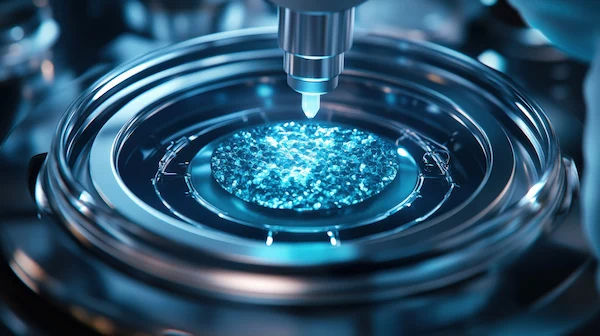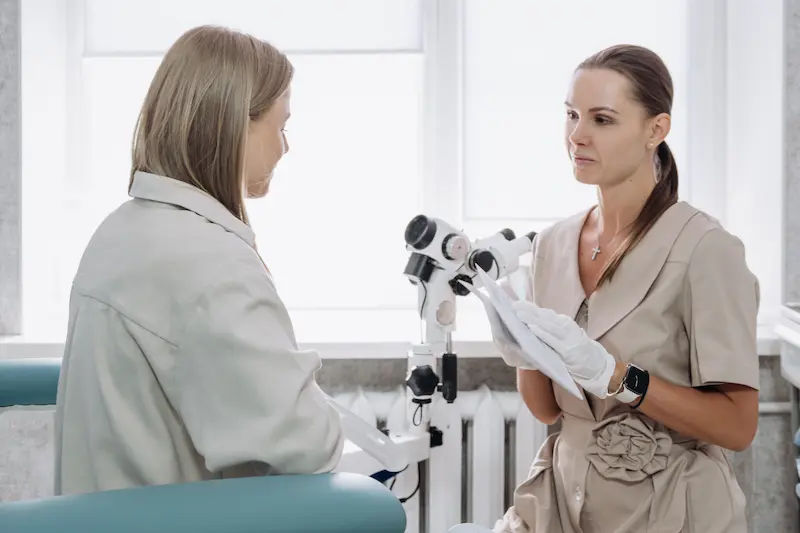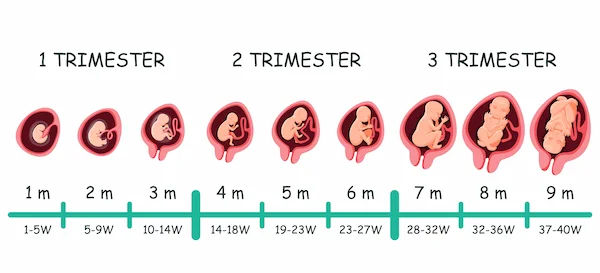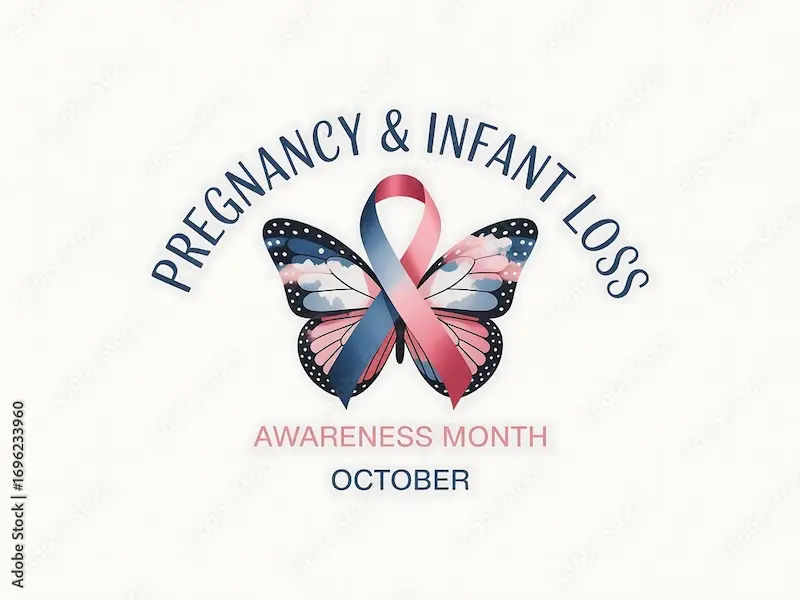Pregnancy Nutrition Myths; A Doctor's Guide to What's Real
Discover the truth behind common pregnancy nutrition myths. Learn safe dietary practices, debunk old wives' tales, and make informed choices for a healthy pregnancy.


Introduction
Pregnancy is a time of immense joy, but it can also be overwhelming, especially when it comes to diet. Well-meaning friends, family, and even strangers are quick to offer advice, often shrouded in old wives' tales and persistent dietary myths. Is it really safe to eat sushi? Must you give up coffee entirely? The conflicting information can cause unnecessary stress. This guide cuts through the noise, offering evidence-based clarity on pregnancy nutrition. We will debunk the most common dietary myths and empower you with the facts you need to make informed, confident choices for you and your baby. From calorie counts to caffeine controversies, consider this your trusted resource for separating nutritional fact from fiction.
The "Eating for Two" Fallacy: Calorie Needs Demystified
Perhaps the most pervasive of all pregnancy dietary myths is the idea that you need to "eat for two." This phrase suggests a doubling of food intake, which is not only inaccurate but can lead to excessive weight gain, increasing the risk of complications like gestational diabetes and pre-eclampsia.
What the Science Actually Says About Caloric Intake
Your body becomes incredibly efficient at utilising nutrients during pregnancy. According to the American College of Obstetricians and Gynaecologists (ACOG), most women do not need any extra calories during the first trimester. In the second trimester, an additional 340 calories per day are recommended—equivalent to a yoghurt and a banana. In the third trimester, this increases to about 450 extra calories, roughly the amount in a turkey sandwich. The focus should never be on simply eating more, but on eating better.
The Real Focus: Nutrient Density Over Quantity
Instead of counting calories, focus on packing every meal with nutrients. A bowl of leafy greens, lean protein like chicken or lentils, and whole grains provides far more value for your baby's development than an extra helping of empty-calorie snacks. This approach to pregnancy nutrition ensures you get the essential vitamins and minerals—like folic acid, iron, and calcium—without unnecessary weight gain. If you are concerned about your healthy weight gain, it's best to consult a nutritionist or your obstetrician for personalised guidance.
The Great Debate: Foods to Fear vs. Foods to Embrace
The list of "forbidden foods" can seem endless. However, understanding the why behind the recommendations helps you make smarter choices without living in fear.
Seafood Scares: Navigating Mercury in Fish
The myth that all seafood is dangerous is misleading. Fish like salmon and sardines are rich in omega-3 fatty acids (DHA), which are crucial for your baby's brain development. The real concern is mercury, a neurotoxin found in high levels in large, predatory fish like shark, swordfish, and king mackerel. The key is to choose low mercury fish for pregnancy. ACOG recommends 2-3 servings per week of safe options like shrimp, canned light tuna, salmon, and catfish. Consult a Gynaecologist for the best advice
The Truth About Dairy: Pasteurisation is Key
Dairy is an excellent source of calcium and protein. The risk lies not in dairy itself, but in unpasteurised products. Unpasteurised cheeses and milk can contain harmful bacteria like Listeria, which can lead to severe pregnancy complications. Always check labels for the word "pasteurised." Enjoying pasteurised milk, yoghurt, and hard cheeses like cheddar or parmesan is perfectly safe and highly beneficial.
Caffeine Conundrum: To Drink or Not to Drink?
You don't necessarily have to abandon your morning ritual. Current research indicates that moderate caffeine consumption is safe. Major health organisations, including ACOG, advise limiting intake to less than 200 mg per day. To put that in perspective, an 8-ounce cup of brewed coffee contains about 95 mg. The problem with excessive caffeine is its association with a higher risk of low birth weight. Moderation is the key to safe caffeine intake during pregnancy.
Cravings and Old Wives' Tales: Separating Fact from Fiction
The Spicy Food and Labour Myth
The idea that eating spicy food can induce labour is a fun tale with no scientific backing. While it might give you heartburn—a common pregnancy woe—it does not trigger contractions. Labour is a complex hormonal process that cannot be started by a plate of spicy curry.
Do Pregnancy Cravings Reveal Nutrient Deficiencies?
Managing pregnancy cravings is a common topic. There is little evidence to support the idea that a craving for pickles means you need sodium or a desire for ice cream indicates a calcium deficiency. Cravings are likely influenced by hormonal changes that affect taste and smell. It's fine to indulge cravings in moderation, but if you experience non-food cravings like clay or laundry starch (a condition called pica), it is essential to consult a doctor online with Apollo24|7, as this can signal a significant nutrient deficiency like iron-deficiency anaemia.
Modern Myths: "Superfoods," Supplements, and Diet Trends
The Pitfall of "Pregnancy Superfoods"
Beware of marketing that labels a single food as a miracle solution. No one food can provide all the nutrients you need. A balanced diet with a variety of fruits, vegetables, whole grains, and proteins is far superior to relying on a handful of trendy "superfoods."
Are Herbal Teas and Natural Remedies Safe?
Many people assume "natural" equals safe, but this is a dangerous assumption during pregnancy. Some herbal teas, like raspberry leaf (often used in the third trimester after consulting a provider), may be beneficial, but others like pennyroyal or black cohosh can be harmful. Always check with your doctor before consuming any herbal remedy or tea.
Navigating Vegan and Vegetarian Pregnancies
A well-planned vegan or vegetarian pregnancy can be perfectly healthy. The key is ensuring you get enough protein, iron, vitamin B12, calcium, and DHA—nutrients often found in animal products. This may require careful meal planning and specific supplements. If you are following a plant-based diet, discussing your prenatal vitamin requirements with a healthcare professional is highly recommended. Apollo24|7 offers convenient home collection for tests like iron and vitamin B12 levels to help you and your doctor monitor your nutritional status.
Conclusion
Navigating the world of pregnancy nutrition can feel like walking through a minefield of misinformation. By debunking these common dietary myths, we hope to replace anxiety with empowerment. Remember, the goal is not a perfect diet but a balanced, mindful approach centred on whole foods and key nutrients. Listen to your body, honour your cravings in moderation, and prioritise regular prenatal care. Your health and your baby's development are the ultimate priorities. If you have specific concerns about your diet or prenatal vitamin requirements, don't hesitate to seek professional guidance. Booking a physical visit to a doctor with Apollo24|7 can provide the personalised support you need for a healthy and happy pregnancy journey.
Consult a Gynaecologist for the best advice
Consult a Gynaecologist for the best advice

Dr Jaya Kumar Agarwal
Obstetrician and Gynaecologist
25 Years • MBBS , DGO , DNB (obstetric and gynecology) DGE diploma in Gyne endoscopy (Germany )
Delhi
Apollo Hospitals Indraprastha, Delhi

Dr. Pavithra Ramakrishnan
Obstetrician and Gynaecologist
10 Years • MBBS, MS (OG), Diploma in Aesthetic (Cosmetic) Gynaecology
Chennai
Apollo Speciality Hospitals OMR, Chennai
(50+ Patients)
Kavitha V Reddy
Obstetrician and Gynaecologist
20 Years • MBBS, DGO
Bengaluru
Apollo Cradle and Childrens Hospital, Bengaluru

Dr. Srinka Mukherjee
Obstetrician and Gynaecologist
7 Years • MBBS, MS Obstetrics & Gynaecology
Kolkata
VDC Clinic, Kolkata

Dr. Millie Dasgupta
Obstetrician and Gynaecologist
10 Years • MBBS,DNB (Obst. & Gynae.)
Kolkata
MCR SUPER SPECIALITY POLY CLINIC & PATHOLOGY, Kolkata
Consult a Gynaecologist for the best advice

Dr Jaya Kumar Agarwal
Obstetrician and Gynaecologist
25 Years • MBBS , DGO , DNB (obstetric and gynecology) DGE diploma in Gyne endoscopy (Germany )
Delhi
Apollo Hospitals Indraprastha, Delhi

Dr. Pavithra Ramakrishnan
Obstetrician and Gynaecologist
10 Years • MBBS, MS (OG), Diploma in Aesthetic (Cosmetic) Gynaecology
Chennai
Apollo Speciality Hospitals OMR, Chennai
(50+ Patients)
Kavitha V Reddy
Obstetrician and Gynaecologist
20 Years • MBBS, DGO
Bengaluru
Apollo Cradle and Childrens Hospital, Bengaluru

Dr. Srinka Mukherjee
Obstetrician and Gynaecologist
7 Years • MBBS, MS Obstetrics & Gynaecology
Kolkata
VDC Clinic, Kolkata

Dr. Millie Dasgupta
Obstetrician and Gynaecologist
10 Years • MBBS,DNB (Obst. & Gynae.)
Kolkata
MCR SUPER SPECIALITY POLY CLINIC & PATHOLOGY, Kolkata
More articles from pregnancy
Frequently Asked Questions
1. Is it true that I shouldn't eat any sushi during pregnancy?
While raw fish carries a slightly higher risk of parasites and bacteria, the primary concern is mercury in certain fish. If you choose to eat sushi, opt for rolls made with cooked fish or vegetables. The safest approach is to choose low mercury fish for pregnancy that is thoroughly cooked.
2. I'm struggling with severe morning sickness. How can I meet my nutritional needs?
This is a common challenge. Focus on small, frequent meals of bland, easy-to-digest foods like crackers, toast, or bananas. Ginger tea can also help. The most important thing is to stay hydrated. If you cannot keep any food or liquids down, it is crucial to consult a doctor online with Apollo24|7 to rule out hyperemesis gravidarum, a severe form of morning sickness.
3. Are there any specific fruits or vegetables I should avoid?
All fruits and vegetables are beneficial, but they must be washed thoroughly to remove any potential toxoplasma parasite from the soil. Avoid unpasteurised fruit juices for the same reason you avoid unpasteurised milk.
4. Can I use artificial sweeteners while pregnant?
Some artificial sweeteners, like aspartame and sucralose, are considered safe in moderation. However, it's best to limit them and satisfy your sweet tooth with natural sources like fruits. Always discuss this with your doctor.
5. Is it safe to diet or try to lose weight during pregnancy?
Attempting to lose weight during pregnancy is not recommended, as it can deprive your baby of essential nutrients. If you are concerned about healthy weight gain, work with your healthcare provider to manage weight through a balanced diet and safe physical activity.




